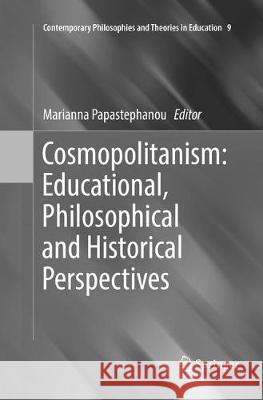Cosmopolitanism: Educational, Philosophical and Historical Perspectives » książka
topmenu
Cosmopolitanism: Educational, Philosophical and Historical Perspectives
ISBN-13: 9783319808079 / Angielski / Miękka / 2018 / 232 str.
Kategorie:
Kategorie BISAC:
Wydawca:
Springer
Seria wydawnicza:
Język:
Angielski
ISBN-13:
9783319808079
Rok wydania:
2018
Wydanie:
Softcover Repri
Ilość stron:
232
Waga:
0.34 kg
Wymiary:
23.39 x 15.6 x 1.3
Oprawa:
Miękka
Wolumenów:
01











